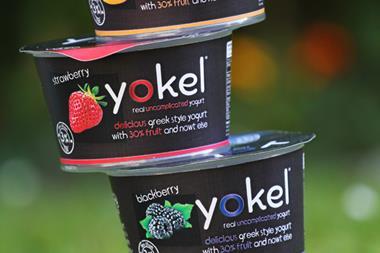Fear of change is an understandable instinct. I constantly urge entrepreneurs and small businesses to embrace technological developments rather than fear them, because factors perceived as harmful to your business frequently turn out to enhance it.
My experience in the recruitment industry, where many people were afraid of innovations such as online job portals and, of course, LinkedIn, is that these developments have made recruitment companies more efficient.
In terms of the retail and manufacturing sectors, e-commerce and the potential for personalised in-store shopping have grown phenomenally in recent years and I genuinely believe we have only touched the tip of the iceberg. There remains so much potential but it requires entrepreneurs with the ability to think creatively to unlock this. Essentially, the task is to think like a customer and work out the consumer trends of the time.
“The rise in popularity of same-day services is long overdue”
The context to this is a whole range of developments that can revolutionise the consumer shopping experience. I’m always meeting interesting entrepreneurs with new ideas and ways to do things and I was also interested to read about food manufacturers in the US experimenting with “smart shelves” that use digital sensors and cameras to track customers. This allows for the manufacturer and store to tailor offers and advertising messages to each individual.
Other large businesses such as British Airways are constantly looking to improve the consumer experience. I use BA on a regular basis and I’m impressed with the improvements it has made through technology to ensure there is an efficient experience for its customers. I can do everything through my own phone from booking a ticket to checking in , which saves time and makes the whole process seamless.
On the e-commerce front, we are seeing the rising popularity in the US of same-day services. This for me is long overdue given the advancements in technology we have seen. E-commerce has the advantage of being quick and convenient but, for too long, this customer experience didn’t extend to the delivery element.
On my CNBC show The Business Class, I am fortunate to meet entrepreneurs who think outside the box, and one of the most interesting businesses of the last series was Shutl, a delivery service firm. Its founder spotted a gap in the market and offered people nationwide delivery within 90 minutes of buying something online. It was able to achieve this by creating a network of multiple courier firms.
Last month, it was announced that Shutl, after four years of excellent growth, had been bought by eBay. This investment could result in a significant improvement in experience for the customer.
Customers are becoming more and more demanding and it is up to retailers and their suppliers to play their part in providing a quality service. They shouldn’t be frightened of embracing the entrepreneurial spirit that has driven start-ups such as Instacart and Shutl.
The outcome will be a more progressive retail sector that uses technology to give customers what they want.
James Caan is an entrepreneur
















No comments yet